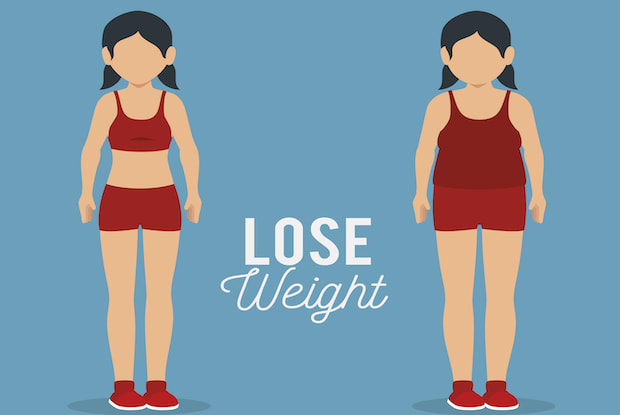What Are the First Steps to Take When Starting a Weight Loss Program?
What Are the First Steps to Take When Starting a Weight Loss Program?
Table of Contents
I. Define Your Goals and Why They Matter
II. Focus on Food Without Getting Overwhelmed
III. Build Movement Into Your Routine
IV. Lean on Support and Stay Flexible
Starting weight loss treatment can feel overwhelming at first. With so many plans and opinions out there, it’s easy to wonder where to begin. However, the truth is that successful weight loss doesn’t start with extremes. It begins with small, intentional choices that align with your lifestyle.
Whether your goal is to feel more energized, lower your health risks, or simply build better habits, the first steps matter most. These early moves help you create a foundation you can stick with, not just for a few weeks, but for the long haul. From setting clear goals to building in support, several smart strategies can make a significant difference.
If you’ve been thinking about getting healthier but aren’t sure how to start, you’re not alone. The good news is, a well-planned beginning can lead to real, lasting results.
Quick Takeaways
- Start with realistic goals that focus on progress, not perfection
- Nutrition, movement, and mindset all play important roles
- Tracking habits early helps you stay consistent
- A check-in with your doctor can set the stage for success
- Small, simple changes add up over time
- Support makes it easier to stay motivated
Define Your Goals and Why They Matter
Start With a Purpose
Before you start counting calories or hitting the gym, think about why you want to lose weight. You may want to feel stronger, sleep better, or reduce health risks. These personal reasons can help keep you focused and motivated when challenges arise.
Establishing a compelling reason from the outset makes your goals more meaningful. It’s easier to stay committed when you’re working toward something that matters to you, not just a number on the scale. This kind of mindset helps you build habits that last.
Set Realistic and Measurable Milestones
Rather than setting broad goals like "lose weight," choose something more specific. Try saying, "lose 10 pounds in three months" or "walk 30 minutes four times a week." These clear goals make it easier to see how far you’ve come.
When you know exactly what you're working toward, it’s easier to stay on track. You can measure your progress and adjust as needed. This approach keeps you focused without feeling overwhelmed.

Avoid All-or-Nothing Thinking
Weight loss isn’t about being perfect every day. Focus on making one or two changes at a time and give yourself grace when things don’t go exactly as planned. Flexibility matters more than perfection when you’re building a long-term routine.
Focus on Food Without Getting Overwhelmed
Start With One Meal at a Time
You don’t need a complicated diet to get started. Many people start by making small adjustments to their daily routine, such as swapping fast food lunches for home-packed meals or cutting back on sugary drinks.
Here are a few easy ideas:
- Add a vegetable to every meal
- Choose water more often than soda
- Eat slowly and stop when you’re comfortably full
- Focus on protein and fiber to stay satisfied
Simple swaps like these can reduce calories and increase nutrition without making you feel restricted.
Don't Skip the Grocery Plan
Having healthy options on hand makes it easier to avoid impulse decisions. Try planning a few easy meals and snacks before you shop. Consider your schedule, cooking comfort, and the foods you genuinely enjoy.
A well-stocked fridge might include:
- Pre-cut veggies and fruit
- Cooked chicken or beans
- Greek yogurt or cottage cheese
- Whole grains like oats or brown rice
Making intentional food choices makes eating healthier feel achievable, not daunting.

Build Movement Into Your Routine
Start Where You Are
You don’t need a gym membership to get moving. Start by adding light activity to your day in ways that feel natural. Take the stairs, park farther away, and stretch while watching TV. If you’ve been inactive, even a 10-minute walk can boost your energy and mood.
Movement also helps regulate appetite and manage stress. The goal isn’t to work out for hours—it’s to get consistent. Choose something you don’t dread, and build from there.
Use a Habit Tracker or Reminder System
Sticking to new habits gets easier when you track them. A simple checklist or app can help you remember to prepare meals or move them.
Try this 3-step system:
- Pick one or two habits to track (like walking or drinking water)
- Set a daily reminder—phone alarms work great
- Celebrate your wins weekly, not just scale results
Creating a routine doesn’t have to be rigid. Just showing up consistently builds momentum.
Lean on Support and Stay Flexible
Talk to Your Doctor or Health Coach
Before starting a weight loss program, it’s advisable to consult with a healthcare provider. They can help rule out any health issues and may recommend tools or medications to support your progress. Some people also benefit from meeting with a dietitian or coach who can tailor a plan to their needs.
Find a Support System That Works for You
Weight loss can feel lonely, but it doesn’t have to be. A friend, walking buddy, or online group can make a big difference in staying on track. Many people find motivation in activities such as regular progress check-ins, sharing meals or workouts with someone supportive, or even keeping a journal to track daily wins and challenges.
Support doesn’t have to be formal or structured. What matters most is having someone in your corner who understands your goals and encourages you to keep going, especially on the days when motivation feels low.
Get Going With ScriptsMD
The first steps in a weight loss journey are often the most crucial. Starting with small, clear goals and realistic changes to food and activity helps build confidence and consistency. With the right mindset and support, even simple shifts can lead to significant progress over time.
No matter your starting point, what matters most is showing up for yourself. One healthy habit at a time, you can move closer to your goals and feel better along the way.
For more support navigating your insurance benefits for weight loss treatments, contact ScriptsMD today.
